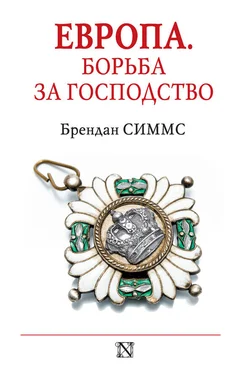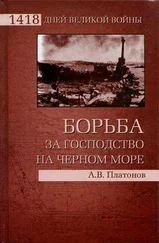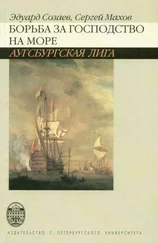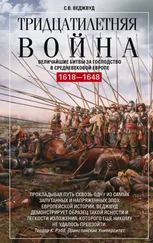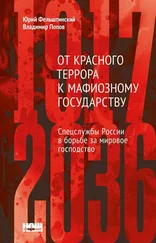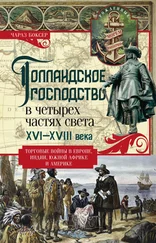Quoted in Hochedlinger, ‘Who’s afraid of the French Revolution?’, p. 310.
Geoffrey Symcox, ‘The geopolitics of the Egyptian expedition, 1797–1798’, in Irene A. Bierman (ed.), Napoleon in Egypt (Reading, 2003).
Quoted in Edward James Kolla, ‘Not so criminal: new understandings of Napoleon’s foreign policy in the east’, French Historical Studies, 30, 2 (2007), p. 183. О склонности Наполеона воспринимать Азию в рамках европейской концепции баланса сил: Iradji Amini, Napoleon and Persia. Franco-Persian relations under the First Empire, within the con – text of the rivalries between France, Britain and Russia (Richmond, 1999), pp. 47–54.
Quoted in Karl A. Roider, Baron Thugut and Austria’s response to the French Revolution (Princeton, 1992), pp. 283–4.
Manfred Hellmann, ‘Eine Denkschrift über Russland aus dem Jahre 1800’, in Heinz Dollinger, Horst Gründer and Alwin Hanschmidt (eds.), Weltpolitik. Europagedanke. Regionalismus (Münster, 1962), pp. 135 and 156 (quotation p. 139).
James Livesey, ‘Acts of Union and disunion: Ireland in Atlantic and European contexts’, in Dáire Keogh and Kevin Whelan (eds.), Acts of Union. The causes, contexts and consequences of the Act of Union (Dublin, 2001), pp. 95–105 (Cooke is quoted on p. 97).
Quoted in Erwin Hölzle, Das alte Recht und die Revolution. Eine politische Geschichte Württembergs in der Revolutionszeit, 1789–1806 (Munich and Berlin, 1931), p. 273.
Quoted in Friedrich Wilhelm Kantzenbach, Politischer Protestantismus. Von den Freiheitskriegen bis zur Ära Adenauer (Saarbrücken, 1993), p. 310. (Herder was writing in 1802.)
Brendan Simms, The impact of Napoleon. Prussian high politics, foreign policy and the crisis of the executive, 1797–1806 (Cambridge, 1997).
John Ferling, John Adams. A life (Knoxville, 1994), p. 341. О том, как внешнеполитические факторы определяли внутреннюю политику США до самых нижних уровней: Maurice J. Bric, Ireland, Philadelphia and the re-invention of America, 1760–1800 (Dublin, 2008), pp. xvi, 117 and 246–7.
Quoted in Michael Duffy, ‘Britain as a European ally, 1789–1815’, in Diplomacy and Statecraft, 8, 3 (1997), p. 28. О важности объединения континента против Британии: Charles Esdaile, The wars of Napoleon (London, 1995), pp. 75–6 and 106.
James E. Lewis Jr, The American Union and the problem of neighborhood. The United States and the collapse of the Spanish Empire, 1783–1829 (Chapel Hill, 1998), pp. 25–7.
Jon Kukla, A wilderness so immense: the Louisiana Purchase and the destiny of America (New York, 2003), pp. 229–34 (Jefferson is quoted on p. 231).
Gentz’s remark of August 1806 is cited in Alexander von Hase, ‘Das konservative Europa in Bedrängnis: zur Krise des Gleichgewichtspublizisten Friedrich (von) Gentz (1805–1809)’, Saeculum, 29 (1978), pp. 385–405 (p. 393).
Philip G. Dwyer, ‘Napoleon and the foundation of the Empire’, Historical Journal, 53 (2010), pp. 339–58.
«Французская республика – император Наполеон» ( фр .) . Примеч. ред.
Quoted in Ulrike Eich, Russland und Europa. Studien zur russischen Deutschlandpolitik in der Zeit des Wiener Kongresses (Cologne and Vienna, 1986), p. 59.
Quoted in Krüger and Schroeder (eds.), Transformation of European politics, p. 237.
Quoted in Roider, Baron Thugut, p. 372.
Helmuth Rössler, Napoleons Griff nach der Karlskrone. Das Ende des alten Reiches 1806 (Munich, 1957).
Philip G. Dwyer, Talleyrand (London, 2002), pp. 98–100 and 108–9.
Tim Blanning, ‘Napoleon and German identity’, History Today, 48 (1998), pp. 37–43.
Quoted in John P. LeDonne, The Russian Empire and the world, 1700–1917. The geopolitics of expansion and containment (New York and Oxford, 1997), p. 303. See also Dominic Lieven, Russia Against Napoleon (London, 2009).
Quoted in Enno E. Kraehe, Metternich’s German policy. Vol. II: The Congress of Vienna, 1814–1815 (Princeton, 1983), p. 6.
Quoted in Simms, Struggle for mastery in Germany, p. 92.
Rafe Blaufarb, ‘The ancien régime origins of Napoleonic social reconstruction’, French History, 14, 4 (2000), pp. 408–23, especially pp. 416–20.
Donald Stoker, Frederick C. Schneid and Harold D. Blanton (eds.), Conscription in the Napoleonic era. A revolution in military affairs? (London and New York, 2009), pp. 6–23 and 122–48.
Stuart Woolf, Napoleon’s integration of Europe (London and New York, 1991).
Stuart Woolf, ‘French civilization and ethnicity in the Napoleonic Empire’, Past and Present, 124 (1989), pp. 96–120, especially pp. 106–7.
Quoted in Biancamaria Fontana, ‘The Napoleonic Empire and the Europe of nations’, in Anthony Pagden (ed.), The idea of Europe. From antiquity to the European Union (Cambridge, 2002), pp. 116–28 (quotation p. 120).
Martyn P. Thompson, ‘Ideas of Europe during the French Revolution and Napoleonic Wars’, Journal of the History of Ideas, 55 (1994), pp. 37–58 (quotation p. 39).
Biro, German policy of revolutionary France, vol. 2, p. 62.
Quoted in David Lawday, Napoleon’s master. A life of Prince Talleyrand (London, 2007), p. 116.
Quoted in Brendan Simms, ‘Reform in Britain and Prussia, 1797–1815: confessional fiscal-military state and military-agrarian complex’, in Proceedings of the British Academy, 100 (1999), pp. 82–3.
Ute Frevert, ‘Das jakobinische Modell: allgemeine Wehrp icht und Nationsbildung in Preussen-Deutschland’, in Ute Frevert (ed.), Militär und Gesellschaft im 19. und 20. Jahrhundert (Stuttgart, 1997), pp. 17–47 (quotation p. 20).
Heinz Duchhardt, Stein. Eine Biographie (Münster, 2007), pp. 164–235.
Quotations in Simms, ‘Reform in Britain and Prussia’, pp. 83–4.
Brendan Simms, ‘Britain and Napoleon’, in Dwyer (ed.), Napoleon and Europe, pp. 189–203.
Otto Johnston, ‘British espionage and Prussian politics in the Age of Napoleon’, Intelligence and National Security, 2 (1987), especially p. 238.
О связи между внешней угрозой и внутренними преобразованиями: Karl Roider, ‘The Habsburg foreign ministry and political reform’, Central European History, 22 (1989), especially pp. 162 and 172.
Читать дальше
Конец ознакомительного отрывка
Купить книгу
